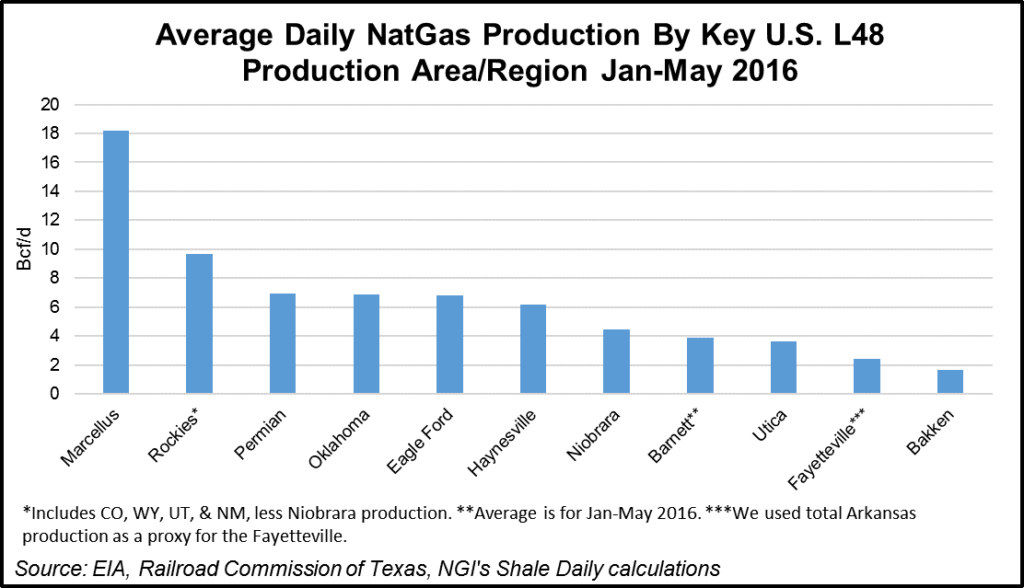Shale Daily | E&P | NGI All News Access
DOE Funding UT-Austin Shale Study Reboot
The Bureau of Economic Geology Shale Production and Reserves Study at the University of Texas at Austin has been awarded a $350,000 grant by the U.S. Department of Energy (DOE) for an 18-month study reviewing prior analysis of major U.S. shale gas plays: the Barnett, Fayetteville, Haynesville and Marcellus.

The main objective of the update is to enhance resource assessment work that the shale study researchers conducted with funding from the Alfred P. Sloan Foundation on the four natural gas plays. The study would help to ensure consistency of approach across the plays and incorporate recent data, allowing researchers to capture new market dynamics, emerging technologies and company strategies, which drive shale resource development.
“Our current outlooks were built on relatively short production histories: six years of intense horizontal drilling in the Barnett, five years in the Fayetteville and Haynesville, and four years in the Marcellus,” said Svetlana Ikonnikova, co-principal investigator of the shale study. “Since we completed these studies, more wireline logs and core analyses have been released, allowing for more accurate geological and petrophysical characterization.”
The addition of four extra years of production data for the Barnett gas play (see Shale Daily, March 1, 2013), three years of data for the Fayetteville (see Shale Daily, Jan. 9, 2014), and two years of data for the Haynesville (see Shale Daily, Dec. 21, 2015) and Marcellus shale plays enable the study of emerging drilling and completion technologies, the university researchers said. They plan to revisit the original production scenarios performed by the Bureau of Economic Geology in order to refine well productivity analyses in each shale basin and set a consistent data year (2015) and future production year (2045) for all four basins.
Access to data on hydraulic fracturing treatment fluids, which were not available during the original analyses of the Barnett, Fayetteville, and Haynesville shale plays — but which were found to be an important determinant of production in the analysis of the Marcellus play — would enable enhanced well economics and field outlook analyses, they said.
The DOE grant would fund individual reports on each shale basin based on geological analysis, decline analysis, production economics, and field outlook. In addition, a combined report would combine the outlooks from the individual plays and discuss alternative scenarios with respect to prices, technology, pace of drilling and other factors.
© 2024 Natural Gas Intelligence. All rights reserved.
ISSN © 2577-9877 | ISSN © 2158-8023 |
